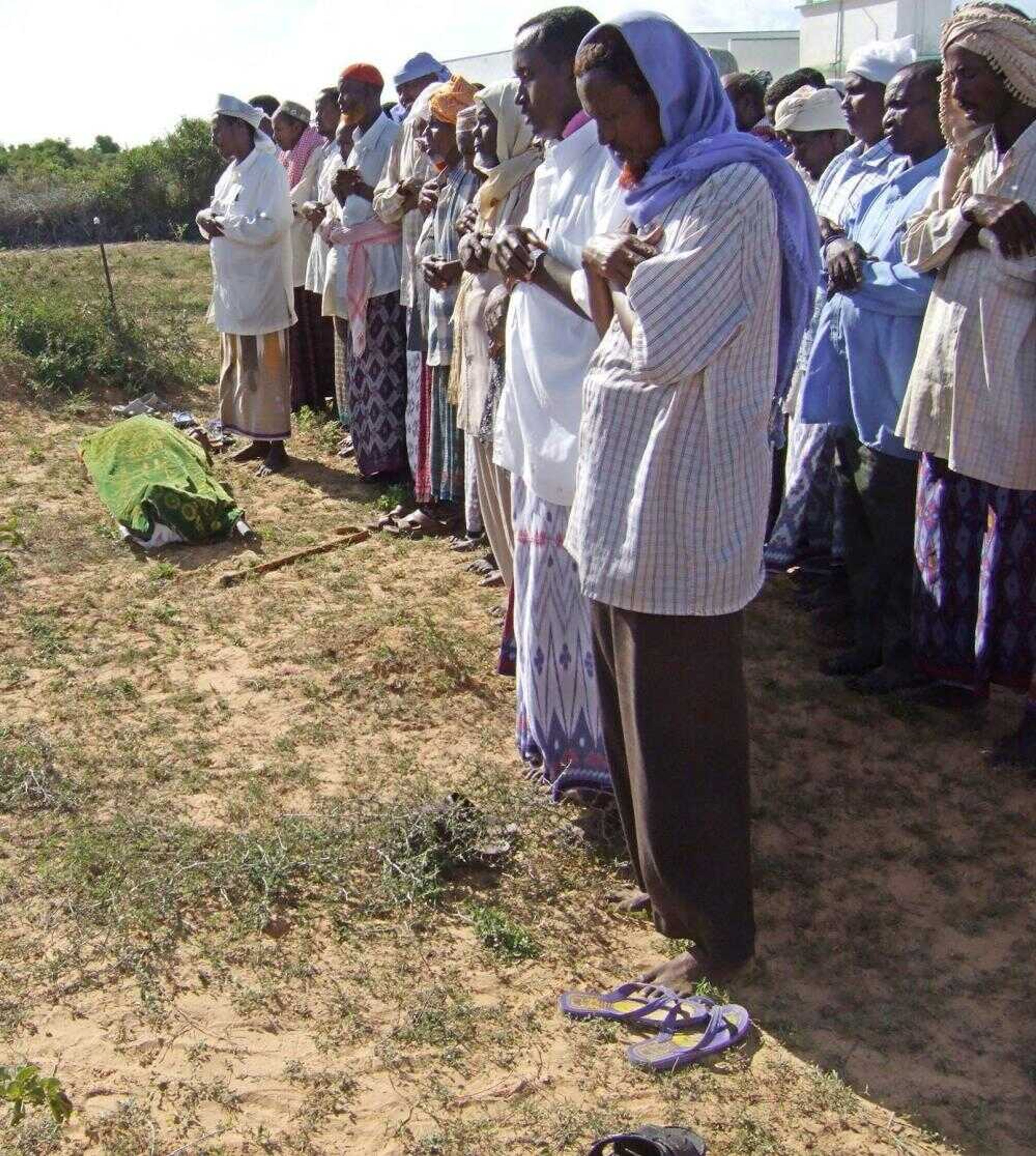MOGADISHU, Somalia -- A U.S. warship pounded Somalia's remote coastal northeast, targeting Islamic militants hours after a gunbattle with Somali government forces that left eight insurgents dead, officials said Saturday.
The fighting late Friday, which the provincial government said included an American militant, appeared to mark the opening of a new front against Islamic militants in Puntland, a semiautonomous region that has remained relatively peaceful through Somalia's anarchy.
The government declared victory in April against insurgents in the Somali capital, which is in the south. Since then officials of the government and Ethiopian troops sent to prop it up have been targeted in bomb attacks.
"The insurgency appears to be spreading to other parts of Somalia," said Ted Dagne, specialist in African Affairs at the Congressional Research Service in Washington.
Puntland Vice President Hassan Dahir Mohamoud said eight foreign militants were killed in the fighting and Somali forces were pursuing five others. He said there were no civilian casualties because the area is uninhabited.
Mohamoud said the Puntland government had requested the U.S. Navy to help fight the militants.
He said the government knew the nationalities of five of the foreign militants: the United States, Britain, Sweden, Eritrea and Yemen. He said security forces identified them from their passports.
"We have successfully completed the operation against the terrorists who came here, and we are chasing the other five," said Mohamoud, speaking from Puntland's capital, Garowe. He said the total number of militants was 13; government officials earlier reported as many as 35.
Muse Gelle, a regional governor, said the militants arrived in the area near the port town of Bargal by speedboat on Wednesday. He said a U.S. destroyer attacked late Friday.
Musa Ismail Mohamed, a former government economist who lives in Puntland, compared the area where the fighting took place to Afghanistan's Tora Bora, which U.S. forces besieged in 2001 in a failed effort to flush out Osama bin Laden.
"Americans should strike it harder than yesterday and then they will succeed. If they do not do that, then may be Bargal may become a stronghold for terrorists," Mohamed said Saturday, speaking on the phone from Puntland's main port, Bossaso.
A task force of coalition ships, called CTF-150, is permanently based in the northern Indian Ocean and patrols the Somali coast in hopes of intercepting international terrorists. U.S. destroyers are normally assigned to the task force and patrol in pairs.
Bryan Whitman, a Pentagon spokesman, could not confirm U.S. involvement in Friday's fighting, but added: "The very nature of some of our operations, as well as the success of those operations is often predicated on our ability to work quietly with our partners and allies."
Puntland's minister of information, Mohamed Abdulrahman Banga, told the AP that the extremists arrived heavily armed in two fishing boats from southern Somalia, which they controlled for six months last year before being routed by Ethiopian troops.
"They had their own small boats and guns," he said.
The United States has repeatedly accused Somalia's Council of Islamic Courts of harboring terrorists linked to al-Qaida and allegedly responsible for the 1998 bombings of the U.S. Embassies in Kenya and Tanzania.
The U.S. sent a small number of special operations troops with the Ethiopian forces that drove the Islamic forces into hiding. U.S. warplanes have carried out at least two airstrikes in an attempt to kill suspected al-Qaida members, Pentagon officials have said.
--—
Associated Press writer Salad Duhul in Mogadishu, Somalia, and Tom Maliti in Nairobi, Kenya contributed to this report.
Connect with the Southeast Missourian Newsroom:
For corrections to this story or other insights for the editor, click here. To submit a letter to the editor, click here. To learn about the Southeast Missourian’s AI Policy, click here.







